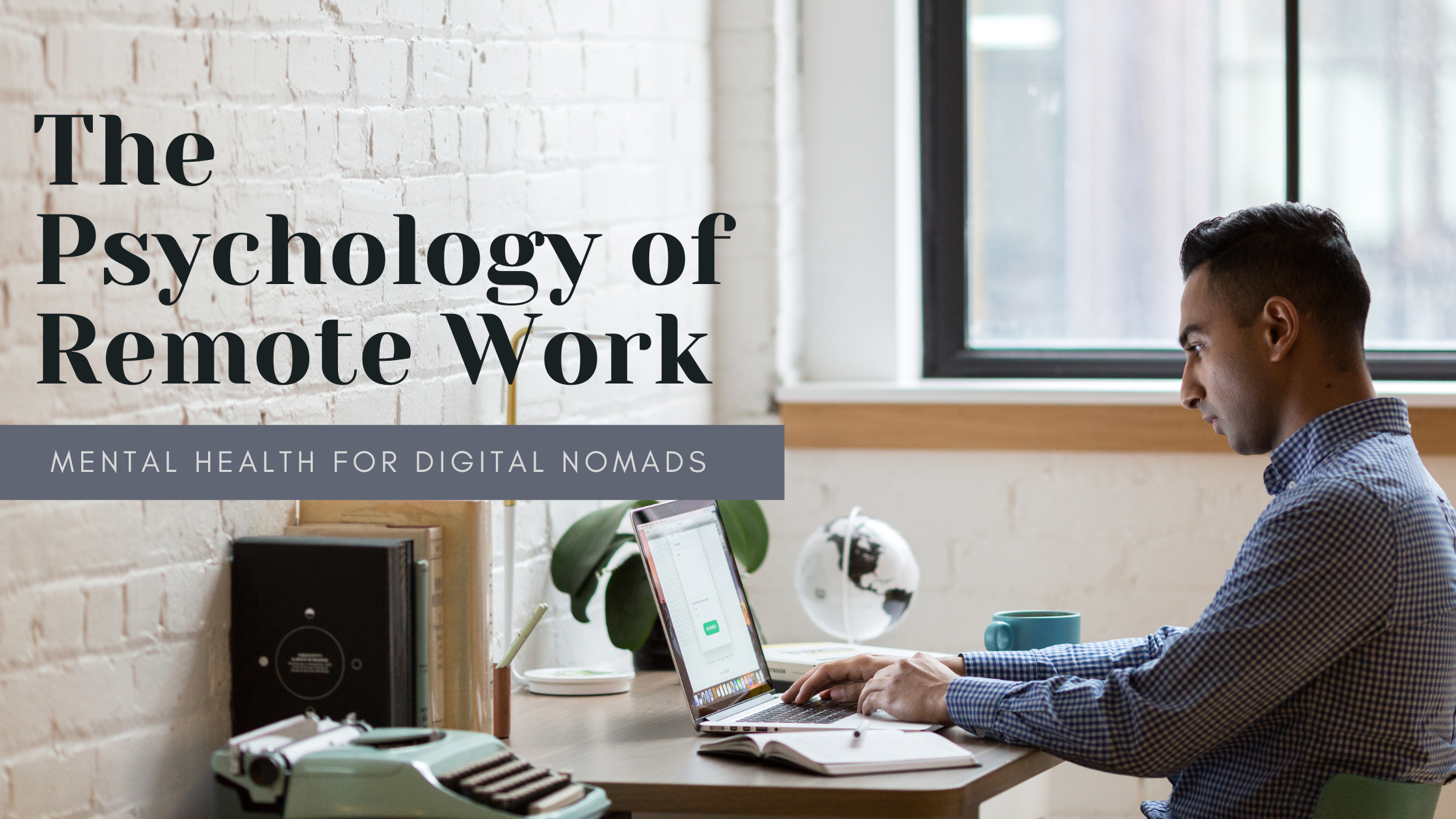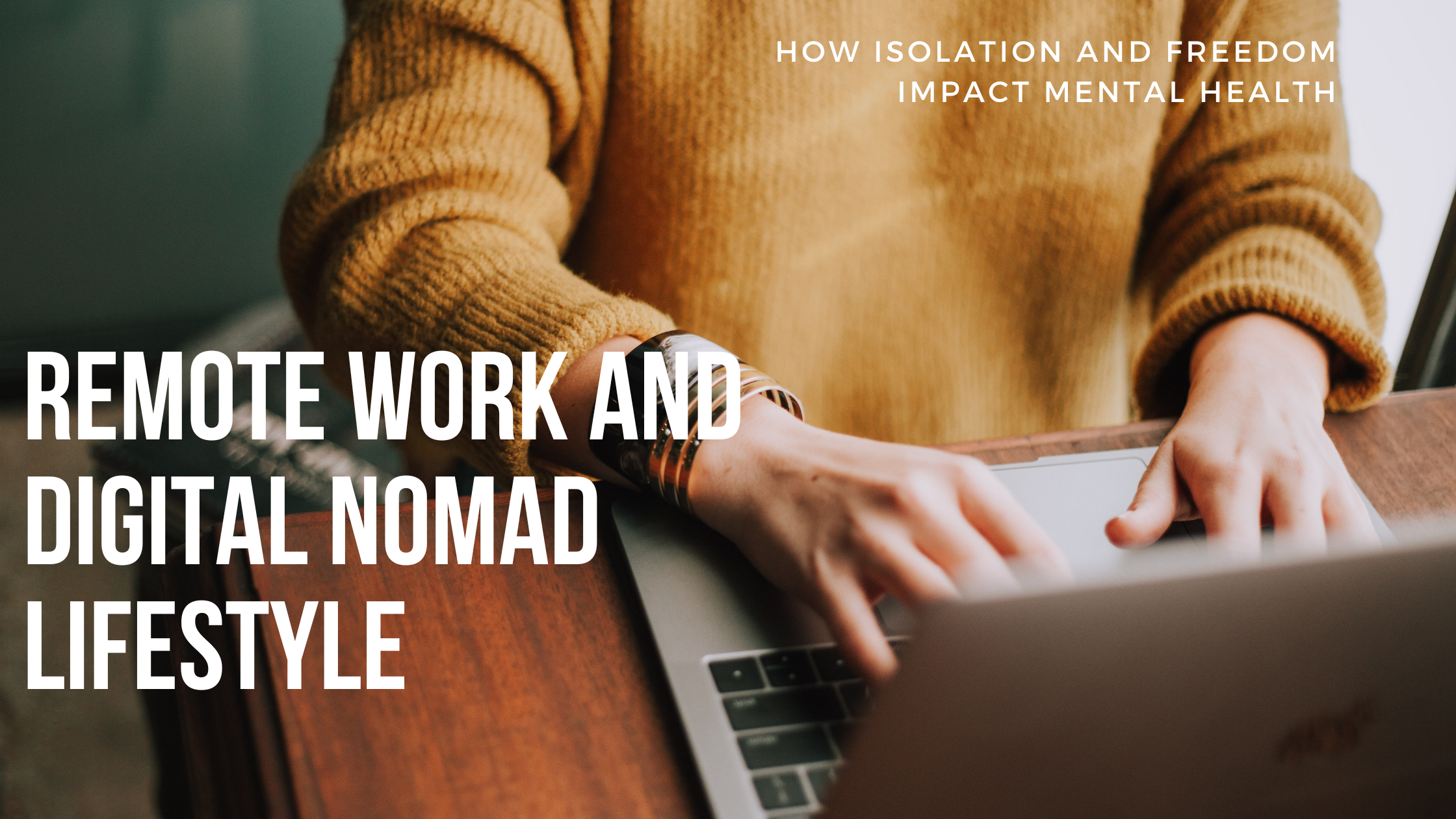The rise of remote work and the digital nomad lifestyle has transformed how we approach careers, offering unprecedented freedom and flexibility. For many, the ability to work from anywhere in the world is a dream come true. However, this lifestyle also comes with unique psychological challenges that can impact mental health.
In this blog, we’ll explore the psychology of remote work, examining how isolation and freedom shape our mental well-being, and provide actionable tips to help you thrive in this dynamic way of life.
The Freedom of Remote Work: A Double-Edged Sword
Remote work offers a level of autonomy that traditional office jobs often lack. You can design your own schedule, work from inspiring locations, and avoid the daily grind of commuting. This freedom can lead to increased creativity, reduced stress, and a better work-life balance.
However, this newfound independence also comes with its own set of challenges:
- Isolation and Loneliness
One of the most significant psychological challenges of remote work is the lack of social interaction. Without the casual conversations and camaraderie of an office environment, many remote workers feel isolated. For digital nomads, constantly moving from one place to another can make it difficult to form lasting connections, leading to feelings of loneliness. - Blurred Boundaries Between Work and Personal Life
When your home (or a café, co-working space, or Airbnb) becomes your office, it can be challenging to separate work from personal life. This blurring of boundaries can lead to overworking, burnout, or difficulty “switching off” at the end of the day. - The Pressure to Be Productive
The freedom to work from anywhere can sometimes feel overwhelming. The pressure to make the most of your time in a new location or to constantly be productive can create stress and guilt, especially if you feel like you’re not living up to the “ideal” digital nomad lifestyle.
The Psychological Benefits of Remote Work
Despite the challenges, remote work also offers significant mental health benefits:
- Increased Autonomy and Control
Having control over your work environment and schedule can boost motivation and job satisfaction. This sense of autonomy is a key driver of happiness for many remote workers. - Reduced Commute Stress
Eliminating the daily commute saves time and reduces stress, allowing for more time to focus on personal well-being, hobbies, and relationships. - Exposure to New Cultures and Experiences
For digital nomads, traveling and immersing yourself in different cultures can broaden your perspective, enhance creativity, and provide a sense of fulfillment.
Strategies to Maintain Mental Well-Being as a Remote Worker
To thrive in the remote work lifestyle, it’s essential to prioritize mental health. Here are some practical tips to help you stay balanced and fulfilled:
- Create a Consistent Routine
Establish a daily schedule that includes dedicated work hours, breaks, and time for self-care. A routine provides structure and helps maintain a healthy work-life balance. - Stay Connected with Others
Combat isolation by staying in touch with friends, family, and colleagues. Join online communities, attend virtual events, or work from co-working spaces to meet like-minded individuals and build a support network. - Set Clear Boundaries
Designate a specific workspace and set clear boundaries between work and personal time. This helps prevent burnout and ensures you have time to relax and recharge. - Practice Mindfulness and Self-Care
Incorporate mindfulness practices like meditation, journaling, or yoga into your daily routine. These activities can reduce stress, improve mental clarity, and help you stay grounded. - Embrace Flexibility and Be Kind to Yourself
Remember that it’s okay to have off days. Embrace the flexibility of remote work and allow yourself to adapt your schedule as needed. Avoid comparing yourself to others and focus on what works best for you.
Conclusion
The psychology of remote work is complex, with both challenges and rewards. While isolation and lack of structure can impact mental health, the freedom and autonomy of the digital nomad lifestyle offer incredible opportunities for personal and professional growth.
By understanding the psychological effects of remote work and implementing strategies to maintain mental well-being, you can create a fulfilling and sustainable lifestyle. Whether you’re a seasoned digital nomad or just starting your remote work journey, prioritizing mental health is key to thriving in this dynamic way of life.






